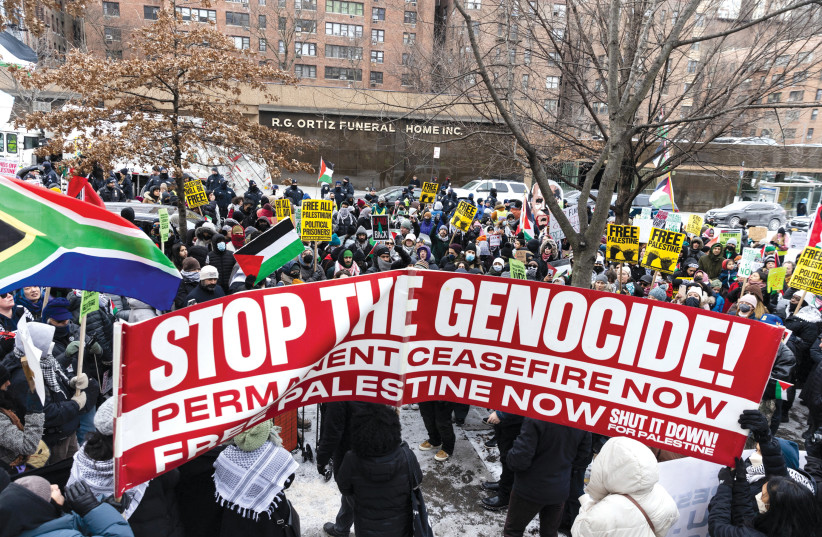The number of antisemitic incidents on college campuses in the United States since the outbreak of the Israel-Hamas war on October 7 passed 1000 on Monday, Adam Lehman, President and Ceo of Hillel International, revealed during a joint session of the Conference of Presidents of Major Jewish Organizations and the Knesset Committee for Immigration, Absorption and Diaspora Affairs on Tuesday morning.
According to Lehman, the number of antisemitic incidents marked a 700% rise since the parallel period a year earlier. Some 44 of these incidents were physical attacks – more than the past 10 years combined; and 56% of Jewish students they feel unwelcome on college campuses, he added.

Harriet Schleifer, Chair of the Conference of Presidents, presented additional data. She said that the number of antisemitic incidents since October 7 amongst all US Jews, not just college students, rose by 360% relative to a similar period the year before, and that 46% of US Jews reported that during the past few months they refrained from showing a public sign of their Judaism out of fear of oppression. Schleifer also said that the fears are also an opportunity to show Jewish resilience and pride, and said that a pro-Israel March in November that drew 330,000 people was a testament to this.
Carol Ann Schwartz, President of Hadassah WZOA (Women's Zionist Organization of America), spoke about the work her organization was doing on behalf of Jewish women in the US and 20 other countries. Schwartz said that the rising levels of antizionism and antisemitism were affecting women at all levels, including fliers, graffiti, threats at synagogues and at day schools, and more. She pledged to continue to speak out about the rape and gender-based violence that Hamas perpetuated against women on October 7, and added that Hadassah was also struggling against associations of teachers in some states and communities who adopted or were trying to adopt biased resolutions against Israel.
Committee chairman, MK Oded Forer (Yisrael Beytenu), opened the session by saying that Israel served as an "insurance policy" for US Jewry, but that the relationship was reciprocal – and Jewish Israelis were equally strengthened by diaspora Jewry. Forer also mentioned the contribution and sacrifice of lone soldiers in Israel's war – and said that the masses of Israelis who attend these soldiers' funerals are a testament to the appreciation Israel feels toward Jewish brethren abroad.
Likud MK Dan Illuz also attended the session, and said that while "October 7 marked a grim reminder of the relentless hostility we face, not only witnessing the brutality of our adversaries but also their ruthless tactics," there was still reason for hope: "If we would have told our grandparents scattered around the world that 1000 Jews were killed in a pogrom, they would have said that it is sad, but that's life. But if we would have told them that hundreds of thousands of soldiers rose to defend their people on that same day, this idea would have been beyond belief for them," Illouz said.
